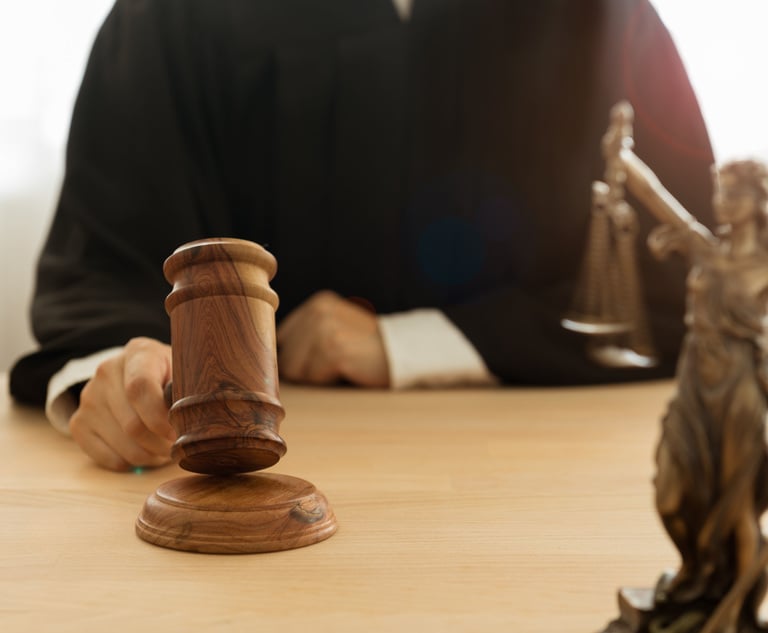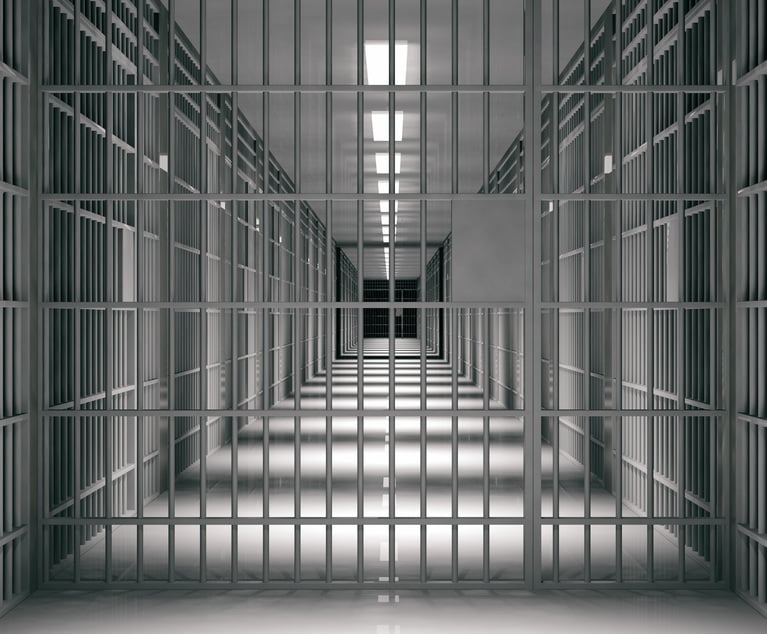Statewide Directive Issued Following Hair-Shaving Incident at NJ High School Wrestling Match
The Division on Civil Rights issued a new "Guidance on Race Discrimination Based on Hairstyle" that explains that treating people differently due to their hairstyle may violate the state's anti-discrimination laws.
September 18, 2019 at 05:48 PM
5 minute read
 Credit: chris2766/Shutterstock.com
Credit: chris2766/Shutterstock.com
Attorney General Gurbir Grewal announced on Wednesday that the referee whose ruling led a Buena Regional High School wrestler's dreadlocks to be shaved off just before his match will be suspended for two seasons, and that in-person bias training for officials and staff involved in high school athletics across the state will become mandatory.
The suspension and additional training were part of a memorandum of agreement reached between the state Division on Civil Rights and the New Jersey State Interscholastic Athletic Association at the conclusion of an investigation into the Buena high school incident.
The DCR also issued a new "Guidance on Race Discrimination Based on Hairstyle" that explains that treating people differently due to their hairstyle may violate the state's anti-discrimination laws.
The memorandum requires in-person training for all local "Rules Interpreters" and to all wrestling officials in the state emphasizing that NFHS Rule 4.2.1, which governs the length of an athlete's hair, and when an athlete must wear a hair cover, is based solely on hair length, and not hairstyle.
The changes were prompted by the DCR's investigation into the incident on Dec. 19, 2018, when 16-year-old Andrew Johnson, a wrestler at the Atlantic County school who identifies as mixed race, had his dreadlocks sheared moments before a match with a wrestler from Oakcrest Regional High School.
The referee, Alan Maloney, ordered his hair covered or cut, or else Johnson would have had to forfeit the match because of his hairstyle. When a cover couldn't be located, his hair was cut.
Johnson won the match, but the incident was captured on video and covered widely by media outlets. It caused a national uproar and inspired legislation in Trenton.
As for the DCR's broader guidance on hairstyle, it states that discrimination on the basis of race includes discrimination based on a trait "inextricably intertwined with or closely associated with race," including hairstyle, according to the release from Grewal's office. It also clarifies that policies that ban, limit, or restrict hairstyles closely associated with black ancestry, including twists and locs, may violate New Jersey law.
"Student athletes should be able to compete with each other on a level playing field," said Grewal in a statement. "Racial discrimination in the enforcement of the rules of any sport is inconsistent with the spirit of fair play.
"The Division on Civil Rights' action today makes it less likely that any student athlete will have to endure discrimination that not only undermines fair competition but also violates our state laws," Grewal said. "I also want to commend the NJSIAA for their cooperation and for working collaboratively with DCR to ensure equal treatment of all student-athletes."
The newly required training for wrestling officials and others focuses on the proper interpretation of NFHS Rule 4.2.1, according to the DCR. The training, which is to be completed before the start of this year's wrestling season, will explain the long history of discrimination based on hairstyle.
And by the end of the 2020-21 school year, the NJSIAA is to provide implicit bias training to all high school sports officials statewide and require NJSIAA member schools to provide such training to all athletic administrators, coaches and athletic trainers who work in high school sports. DCR will collaborate with NJSIAA on the trainings, according to the attorney general's release.
The memorandum states, "In particular, they seek to eliminate any interpretation of Rule 4.2.1 that allowed wrestling officials to determine that traditionally Black hairstyles were 'unnatural' or to subject wrestlers with traditionally Black hairstyles to differential treatment as to when a hair cover was required."
The guidance also clarifies that New Jersey law generally prohibits employers, housing providers and places of public accommodation, including schools, from enforcing grooming or appearance policies that ban, limit, or restrict hairstyles closely associated with being black, including, but are not limited to, twists, braids, cornrows, Afros, locs, Bantu knots, and fades, according to the attorney general's release.
Under the guidance, "just as it would likely violate the LAD to refuse to hire an Orthodox Jewish man because he wears payot, or to refuse to hire a Muslim woman because she wears a hijab, or to refuse to hire a Sikh person because they wear uncut hair, it is unlawful to refuse to hire or to otherwise treat a Black person differently because they wear their hair in a style that is closely associated with being Black."
"Discrimination against Black people because of their hair, which is often based on stereotypes that traditionally Black hairstyles are 'unprofessional' or 'unkempt,' is a persistent form of anti-Black racism," said DCR Director Rachel Wainer Apter in the same release. "This guidance makes clear that employers, housing providers and places of public accommodation cannot police Black hair."
Legislation that would prohibit discrimination on the basis of hair style, type, or texture under the New Jersey Law Against Discrimination was introduced in the state Assembly and Senate on June 13. The bills, each awaiting a committee hearing, would prohibit hair discrimination in the workplace, housing and schools. Specifically, the measures would amend the LAD so that the term "race" encompasses "traits historically associated with race, including, but not limited to, hair texture, hair type, and protective hairstyles."
New Jersey's bill is very similar to one that California Gov. Gavin Newsom signed on July 4, known as the "Crown Act."
NOT FOR REPRINT
© 2025 ALM Global, LLC, All Rights Reserved. Request academic re-use from www.copyright.com. All other uses, submit a request to [email protected]. For more information visit Asset & Logo Licensing.
You Might Like
View All


Judge Jablonski and Chief Justice Rabner Both Acted Completely Properly
4 minute read
In 2-1 Ruling, Court Clears Way for Decade-Old Wrongful Imprisonment Suit
5 minute readTrending Stories
Who Got The Work
J. Brugh Lower of Gibbons has entered an appearance for industrial equipment supplier Devco Corporation in a pending trademark infringement lawsuit. The suit, accusing the defendant of selling knock-off Graco products, was filed Dec. 18 in New Jersey District Court by Rivkin Radler on behalf of Graco Inc. and Graco Minnesota. The case, assigned to U.S. District Judge Zahid N. Quraishi, is 3:24-cv-11294, Graco Inc. et al v. Devco Corporation.
Who Got The Work
Rebecca Maller-Stein and Kent A. Yalowitz of Arnold & Porter Kaye Scholer have entered their appearances for Hanaco Venture Capital and its executives, Lior Prosor and David Frankel, in a pending securities lawsuit. The action, filed on Dec. 24 in New York Southern District Court by Zell, Aron & Co. on behalf of Goldeneye Advisors, accuses the defendants of negligently and fraudulently managing the plaintiff's $1 million investment. The case, assigned to U.S. District Judge Vernon S. Broderick, is 1:24-cv-09918, Goldeneye Advisors, LLC v. Hanaco Venture Capital, Ltd. et al.
Who Got The Work
Attorneys from A&O Shearman has stepped in as defense counsel for Toronto-Dominion Bank and other defendants in a pending securities class action. The suit, filed Dec. 11 in New York Southern District Court by Bleichmar Fonti & Auld, accuses the defendants of concealing the bank's 'pervasive' deficiencies in regards to its compliance with the Bank Secrecy Act and the quality of its anti-money laundering controls. The case, assigned to U.S. District Judge Arun Subramanian, is 1:24-cv-09445, Gonzalez v. The Toronto-Dominion Bank et al.
Who Got The Work
Crown Castle International, a Pennsylvania company providing shared communications infrastructure, has turned to Luke D. Wolf of Gordon Rees Scully Mansukhani to fend off a pending breach-of-contract lawsuit. The court action, filed Nov. 25 in Michigan Eastern District Court by Hooper Hathaway PC on behalf of The Town Residences LLC, accuses Crown Castle of failing to transfer approximately $30,000 in utility payments from T-Mobile in breach of a roof-top lease and assignment agreement. The case, assigned to U.S. District Judge Susan K. Declercq, is 2:24-cv-13131, The Town Residences LLC v. T-Mobile US, Inc. et al.
Who Got The Work
Wilfred P. Coronato and Daniel M. Schwartz of McCarter & English have stepped in as defense counsel to Electrolux Home Products Inc. in a pending product liability lawsuit. The court action, filed Nov. 26 in New York Eastern District Court by Poulos Lopiccolo PC and Nagel Rice LLP on behalf of David Stern, alleges that the defendant's refrigerators’ drawers and shelving repeatedly break and fall apart within months after purchase. The case, assigned to U.S. District Judge Joan M. Azrack, is 2:24-cv-08204, Stern v. Electrolux Home Products, Inc.
Featured Firms
Law Offices of Gary Martin Hays & Associates, P.C.
(470) 294-1674
Law Offices of Mark E. Salomone
(857) 444-6468
Smith & Hassler
(713) 739-1250






